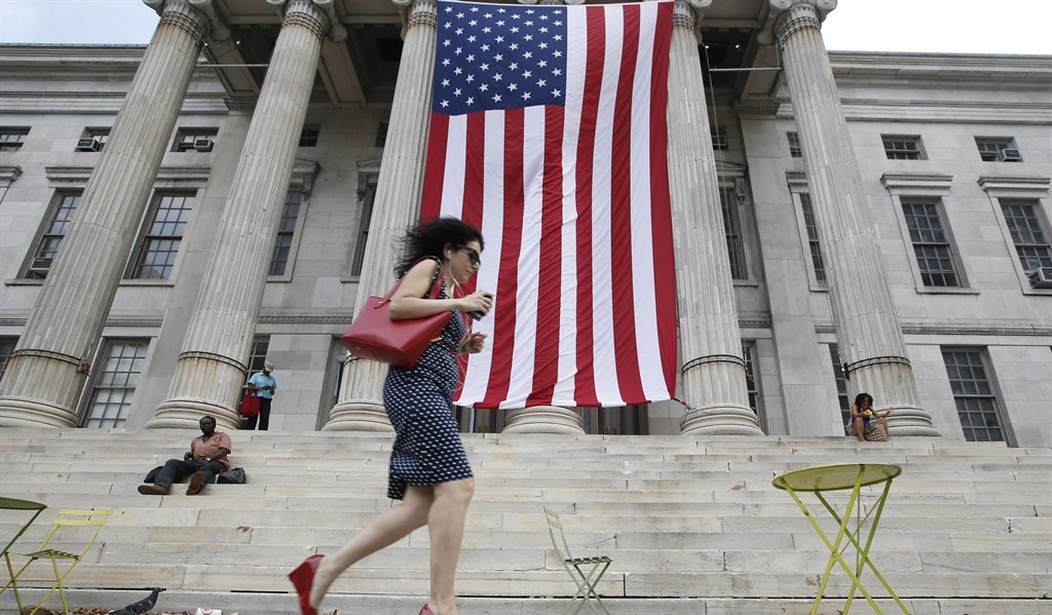It takes all kinds.
When I write that, alone and naked like that, without context, the old saw seems kind of sneering. That’s a pity. I mean it in earnest. It takes all kinds not merely to make up the world as it is, but to improve the world, re-make it for the better.
Sometimes we should try to sneer less and revel in the differences more.
Even where principles are involved.
I remember in the days of my youth, when environmentalists began really ramping up their advocacy. More than one person cooked up a “Declaration of Inter-dependence.” These were politically earnest people, too, who thought they’d seen what was wrong in traditional American politics. And echoes of these manifestoes can be heard in the ways and byways of politics. “What we need is co-operation, not competition!” and “We’re all in this together!”
And we are all in this together. And we do need co-operation.
But we are also all in this separately. And we do need competition.
Truth is, as Ludwig von Mises and many an august social philosopher has made clear, co-operation —voluntaryco-operation — is the main gig in a free society. And even (dare I say it?) the free market.
Interdependence is inevitable. It’s how society works. No one dissents from this. So the crying need for declarations of inter-dependence was about up there with declarations that water is wet.
Declarations of independence are necessary, on the other hand, because voluntary co-operation faces a real danger in governmental mission creep.
Recommended
In 1776, resisting “mission creep” (and much worse) became the principal issue. Could we be approaching something similar, today?
It takes all kinds.
Independence Day came and went, and it’s worth looking back at the very different men who made the day. And the era.
Could any two men be more different than John Adams and Thomas Jefferson? And yet, I doubt if the United States would exist were it not for both. Somehow, they worked together when it counted. And worked against each other, when it seemed necessary.
They were friends and colleagues, bitter opponents, and friends again: after a long estrangement, they re-established their friendship.
The end of the story is well known: on his deathbed on July 4, 1826, Adams whispered, “Thomas Jefferson survives!” He was wrong. Jefferson had died earlier that day, on the 50th anniversary of the Declaration of Independence.
Adams was also wrong about Independence Day itself. On July 2, 1776, after the Lee Resolution for independence passed the Continental Congress, he wrote that “the second day of July” would become the day of “a great anniversary festival.” But “by 1777,” Steve Tally noted in Bland Ambition, his jovial history of the vice presidency, “people were already celebrating the Fourth of July.”
But give him his due: it was Adams who insisted that Jefferson write the Declaration, and it was indeed its words — especially that of its “mission statement” preamble — that resonate almost universally to this day. And gave birth to the annual festivities. On July 2, Congress voted to sever ties with Britain; on July 4, Congress voted to accept Jefferson’s amended Declaration of Independence. The first was an act without the right words; the second supplied the words that embodied the act.
But what did these men embody?
Adams, Tally tells us, was “short, round, peevish, a loudmouth, and frequently a bore.” Jefferson, on the other hand, was tall, handsome, polite, and much more popular. And a much better writer. Which is why he was given his great job, to produce the Declaration.
Great writer or no, it’s not as if the tall redhead’s initial draft was acceptable as it flowed from the pen. Adams, Franklin, and the whole congress got in on the editing job. “Jefferson liked to recall that his document survived further [extensive] editing,” Tally explains, “because of the meeting hall’s proximity to a livery stable.” Still, it’s obvious that Jefferson wasn’t the only genius in the room, and that without Adams’s tireless work, independence might not have gotten off the ground.
The later history of both men, in service to the country they helped found, is riddled with ambiguities and even horrible moral and political lapses. Adams was the kind of politician who not only opposed term limits, but opposedterms: he thought men raised to office should be kept there forever. Jefferson leaned not merely the other direction, but flirted with the notion of a revolution every generation.
I adhere to the anti-federalist slogan of their day, “that where annual elections end, tyranny begins.”
Between the two extremes of these two great men, somehow, the republic survived. And thrived. Their correspondence is a mine of great wisdom, their biographies well worth reading.
Most of all, their legacy — of July 2 and July 4, 1776, and the universal rights of man — remains worth fighting for.
It takes all kinds.
A colleague of mine, Krist Novoselic, former bassist of the great band Nirvana and now chair of the board of FairVote (upon which I also serve), puts the current political and constitutional crisis in a few words: “America is just really stuck.”
And it’s apparent that we, the people, are going to have to take the lead and unstick ourselves. Our leaders sure seem incapable of that.
What to do?
Well, leverage our diversity to pull apart the logjam. Work for general, non-partisan — “transpartisan” — reforms, like term limits . . . and other measures aimed at greater representation, from mandating smaller districts to establishing ranked choice voting.
Remember, in 24 states and most cities and towns, citizens also have the initiative and referendum process to act directly. Staying focused on issues is the key to working across partisan divides.
Who knows what improvements we might be able to make?
Declare what you like, independence, inter-dependence, or what-have-you, until you are willing to work with all kinds, for some shared goals that can do some strategic and general good, things aren’t going to get better.
What begins by thinking independently comes to fruition in successful co-operation.

























Join the conversation as a VIP Member